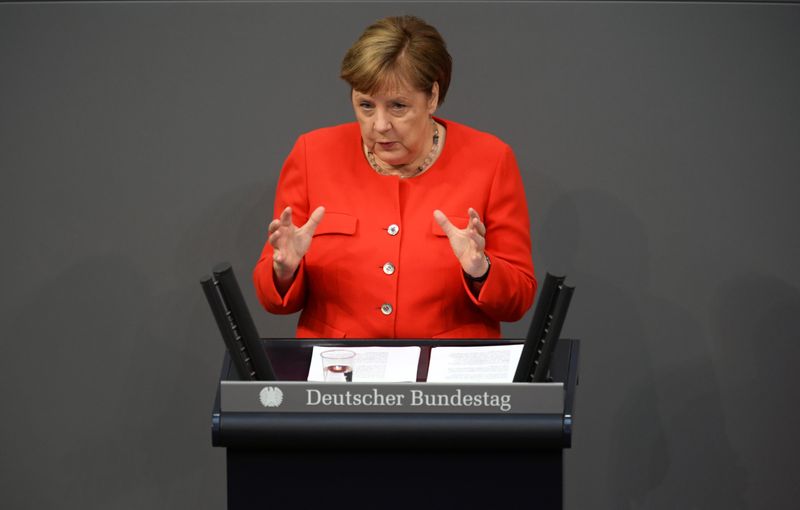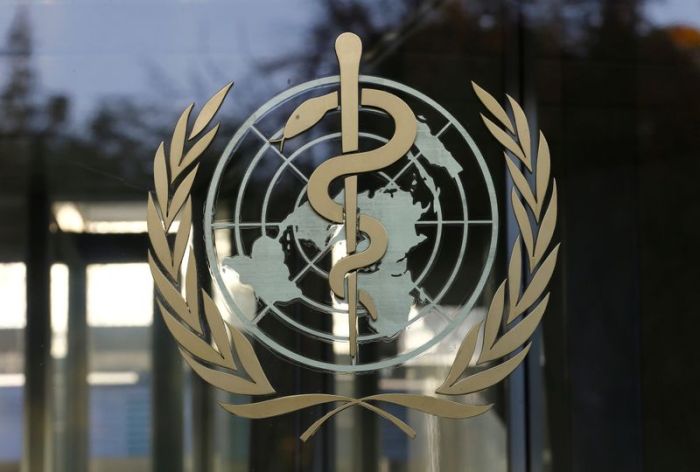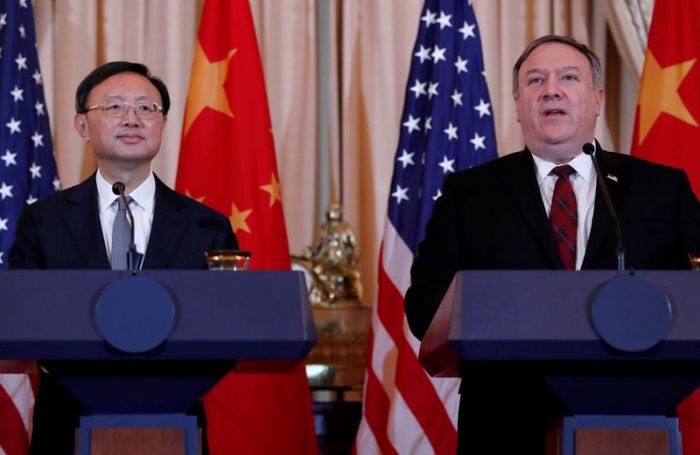BERLIN (Reuters) – The coronavirus pandemic has exposed the weakness of the European Union and Germany will use its presidency of the bloc to promote solidarity and economic prosperity among its 27 member states, Chancellor Angela Merkel said on Thursday.
In a speech to parliament, Merkel said the most immediate challenge facing the bloc reeling from more than 100,000 deaths linked to COVID-19 and facing its worst recession since World War Two was to agree on a multi-year budget and a recovery fund.
“The pandemic has revealed how fragile the European project still is,” said Merkel, lamenting the “rather national and not European” initial response to the pandemic by EU governments, including her own. “Cohesion and solidarity have never been more important than today.”
Germany takes over the EU presidency for six months on July 1 and Merkel said member states have high expectations of the bloc’s largest economy, which is also its paymaster.
EU leaders will debate the European Commission’s 750 billion euro ($842.93 billion) recovery plan for the first time on Friday, together with a 1.1 trillion euro proposal for the next EU budget for 2021-2027. The plan will need the approval of all member states.
Merkel said she expects an agreement on the spending plans at a physical meeting of EU leaders later this year, playing down the chances of a breakthrough at a videoconference summit on Friday.
“I will make the case that at the European Council we reach a decision about a multi-year financing deal and a recovery fund as quickly as possible,” said Merkel.
The pandemic struck the bloc as it was struggling with other major challenges like finding a common strategy to counter China’s stellar economic rise, dealing with a hostile U.S. administration and achieving technological and military sovereignty.
Merkel touched on some of those issues as she set out her objectives for Germany’s EU presidency. She urged the EU to speak with one voice to China and take on more global responsibility especially by promoting democracy and human rights.
(Reporting by Paul Carrel and Michael Nienaber; Writing by Joseph Nasr; Editing by Michelle Martin)
























